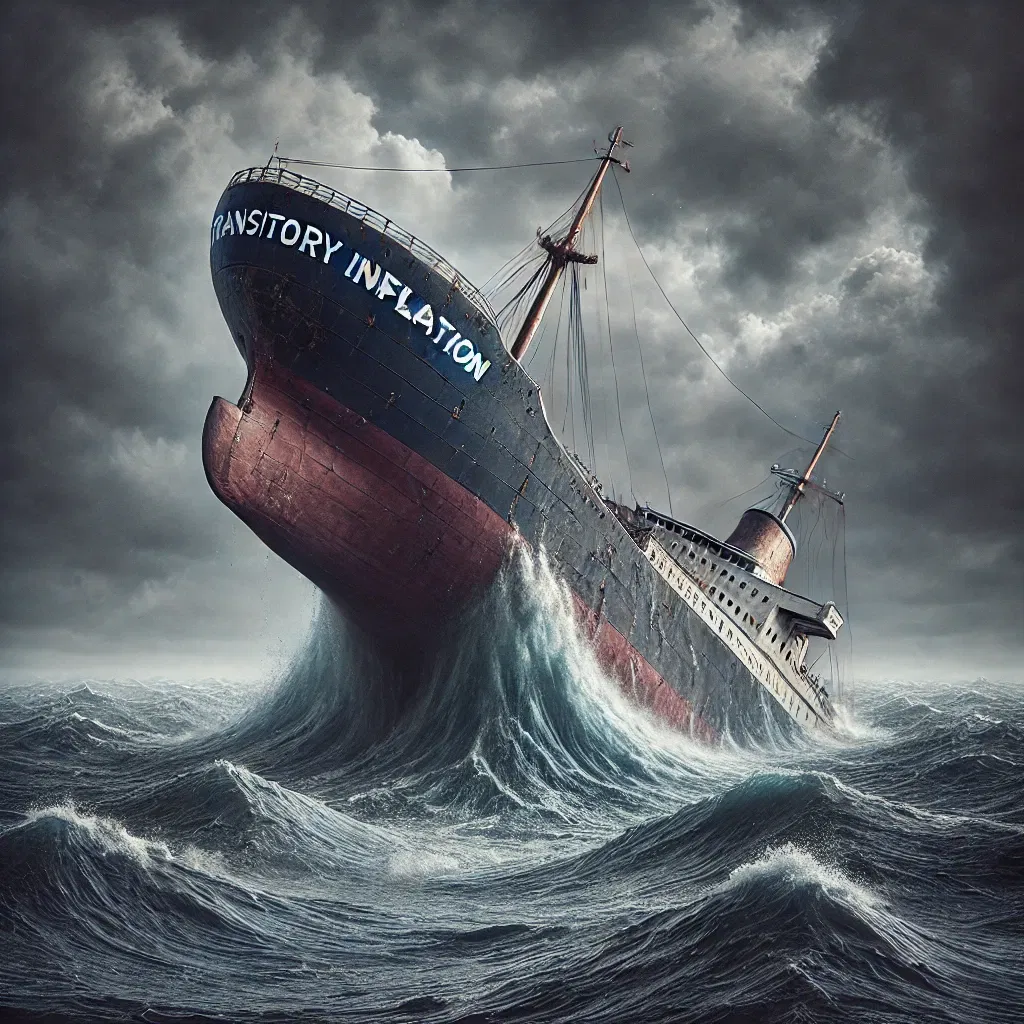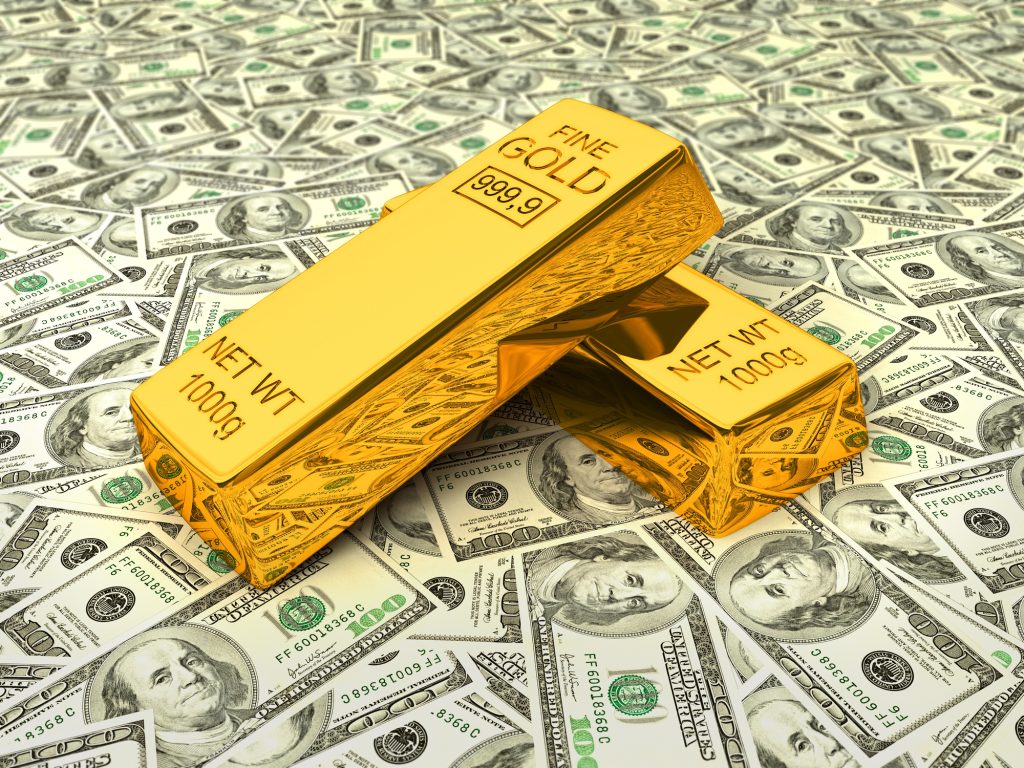It almost sounded like an apology. Almost.
On Friday, Federal Reserve Chairman Jerome Powell stood in front of reporters and explained how we got here… and how inflation took hold.
To be fair, he rightly diagnosed the root causes: extreme government spending and money printing during the pandemic. And then, when the economy reopened after the lockdowns, there was a sudden surge in inflation.
The Fed and its army of experts assumed this inflation would be a temporary phenomenon—what they called “transitory.” They said that, due to the pandemic lockdowns being lifted, prices would rise suddenly, then fall back down.
This turned out to be one of the worst calls in the history of central banking. As we now know, inflation wasn’t transitory. Prices rose and continued to rise higher and higher, and they haven’t come back down.
To his credit, the chairman acknowledged this mistake on Friday.
But he was in quite a jovial mood about it, even joking with reporters about how in late 2021 they all set sail on, “The good ship transitory,” essentially making light of their enormous error that turned a lot of people’s lives upside down.
His joke got a lot of laughs from the room, and it’s nice to see there can be so much levity about a mistake that has cost Americans so dearly.
Adding to the sting is that this press briefing took place at the Federal Reserve’s annual retreat in Jackson Hole, Wyoming—one of the most exclusive and expensive resort towns in the world. And there he was, in fancy Jackson Hole, cracking jokes about blowing the inflation call—a mistake that has wreaked havoc on so many people’s lives.
To be honest it was a bit offensive… sort of like how many generals during World War I drank champagne as their men were being starved and slaughtered on the battlefield.
But again, it was at least an acknowledgment that they got it wrong. And this shouldn’t be an earth-shattering revelation. The Fed is not some all-knowing, all-powerful institution; it’s comprised of flawed human beings. Everyone makes mistakes— you, me, and the Fed Chairman too.
(Although ideally Fed officials would make fewer, smaller mistakes than the rest of us…)
Part of the reason the Fed was wrong is because they claim their decisions are data-driven. But the data they rely on is itself deeply flawed; just look at the most recent revision from the Labor Department, which is a major data source the Fed looks at when crafting policy decisions.
The Labor Department said last week that they were revising down the number of jobs created in 2023 by over 800,000. That’s a huge miss, and it proves that the data the Fed relies on to make decisions is also fundamentally flawed.
So basically our monetary system is run by flawed human beings who make far-reaching, life-altering decisions based on flawed data. What could possibly go wrong?
Quite a lot, obviously. And that’s why it’s worth briefly examining where else the Fed could get it wrong. And we see two clear items on the horizon:
One is the presidential election. A couple of weeks ago, the Fed chairman almost bragged about how the outcome of the Presidential and Congressional elections are irrelevant to them and do not factor into their economic forecasts at all.
This is completely absurd.
On the one hand, you have Kamala Harris, who wants to impose price controls, pass tax hikes, enforce arduous business regulations, push energy prices higher, and more.
On the other hand, Trump wants to reduce the independence of the Fed.
You couldn’t have more diametrically opposed policy outcomes. Yet the Fed is willfully ignoring the massive consequences of what could transpire in November. They’re not thinking about it or planning for it. And that is insane.
The second issue is the national debt. The Fed isn’t sounding the alarm bells. And in the past, it has actually supported the government spending even more money.
And it’s not like “the data” is suddenly absent here. The Congressional Budget Office (CBO) has estimated an additional $22 trillion in new debt over the next decade. And generally, the CBO is conservative— meaning the debt will likely grow even quicker than that.
Who’s going to lend that money to the Treasury Department?
The Fed should know they will play a major role in funding government debt and deficits— triggering a massive money printing operation with major impacts. Yet they don’t say a word about it. They don’t seem to be thinking about it.
We’ve been clear about our assessment of this situation: $22 trillion in new debt will almost certainly be highly inflationary. And a Kamala Harris presidency is extremely likely to knock the US dollar off its throne as the world’s dominant reserve currency.
There’s a very narrow path to avoid that outcome, but it’s looking more and more likely every day.
You’d think the Fed would be planning for it. But they don’t say a word about it, and insist these factors don’t matter to them at all.
To us, this is why it makes so much sense to own real assets—scarce critical resources such as food, energy, key minerals, and productive technology.
If the Fed proves unable to tame inflation, critical commodities like these will grow in value.
And if by some miracle we avoid major inflation, there’s little downside to owning profitable businesses which produce some of the most vital resources on the planet.








